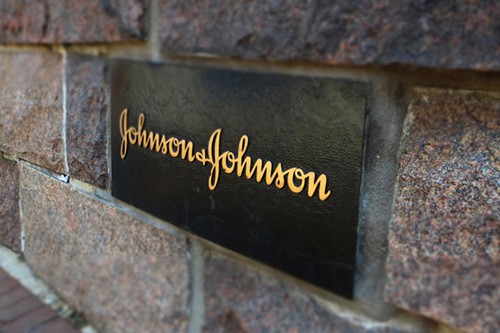
Johnson & Johnson has posted a better-than-expected set of financial results for the third quarter that has been overshadowed by product liability litigation.
The US group said sales rose 1.9% to $20.7bn, with pharma leading the charge with a 6.4% gain to $10.9bn, around $500m ahead of expectations.
Growth for immunology therapy Stelara (ustekinumab) and blood cancer drugs Imbruvica (ibrutinib) and Darzalex (daratumumab) – plus Stelara follow-up Tremfya (guselkumab) – outweighed the effect of generic competition to older prostate cancer therapy Zytiga (abiraterone acetate).
Quite a lot of time on J&J’s conference call was however spent updating analysts on the litigation the company is facing on opioid medicines, talc, and antipsychotic drug Risperdal (risperidone), amongst others.
In August, J&J was ordered to pay Oklahoma $572m in penalties after a court found it liable for contributing to an epidemic in opioid abuse and overdose-related deaths in the state, while the following month it agreed a $20m settlement of similar allegations in Ohio.
Meanwhile, earlier in October J&J was ordered to pay $8bn in damages to a US man who claims he was not warned that taking Risperdal as a child could lead to breast growth. J&J has said it will appeal the verdict and its “grossly disproportionate” pay award.
It has also been hit in the past by lawsuits involving asbestos in talc, hip replacement and vaginal mesh products, some of which are still working their way through the courts.
Chief financial officer Joseph Wolk acknowledged on the call that “businesses in the US are working in a very litigious environment”, but insisted that the fundamentals of J&J remain strong.
The company has not reported its expenses on litigation in the third quarter, and while it acknowledges that remains an uncertainty in its cost base, told Bloomberg that it won’t set aside any legal reserves for the lawsuits as it expects to fight and win many of the claims.
On the Risperdal case, he said US Supreme Court precedent “would suggest it’s very egregious, so we don’t expect that to stand,” while the opioid cases have followed two divergent paths.
J&J chose to fight the case in Oklahoma rather than settle after state prosecutors refused to acknowledge that its share in the opioid market was just 1% across the country, according to Wolk, who said the appeal of that judgment is now in play.
In Ohio, J&J’s minor role in the market was taken into account and resulted in its decision to settle “a reasonable amount in proportion to other companies that were involved as defendants”, with the CFO suggesting J&J was open to a reasonable settlement for the still-outstanding lawsuits involving state and district plaintiffs.
Finally, on talc, Wolk said the case is a “poster child” for class action lawsuits against big companies, with lawyers spending more than $400m this year alone on TV advertising trying to recruit plaintiffs.
“I will remind everyone that there is currently not any case that’s been fully adjudicated that stands in judgment against us,” he added. “But last week alone, there were three decisions that were in favour of the company, and you don’t see headlines on that.”




